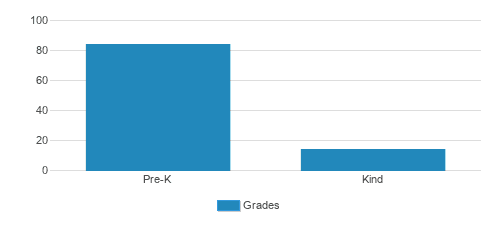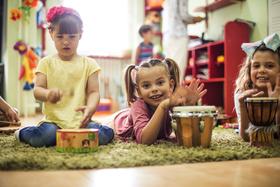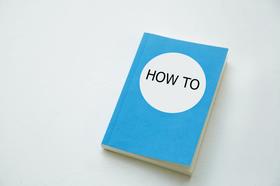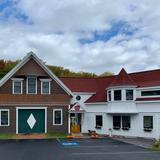The Childrens Center believe fostering development should be the aim of education - that each individual is unique and has his/her own temperament and learning style.
The individual brings this uniqueness into each new experience and takes an active role in the process of learning.
We learn through our actions and interactions with people and our environment.
As teachers, we are also learners, testing out and perfecting our theories about how children learn and how we may best facilitate the process.
We believe that the theories children construct about how the world operates (e.g.
how blocks can be stacked to build a bridge, how to obtain a toy that someone else is using, and when to stop pouring milk so it won't spill) forms the foundation for more complex skills of reading, writing, mathematical, social and moral reasoning.
Thus, we believe development can best be facilitated by giving children a wide range of opportunities to actively explore, manipulate, question, and discover.
Our goals for the children are for them to develop positive self-esteem, to become self-initiated thinkers and discoverers and to have respect for themselves and others in the world in which they live.
Quick Stats (2024-25)
- School Type: Early Childhood / Day Care
- Grades: Prekindergarten-Kindergarten
- Enrollment: 98 students
- Application Deadline: None / Rolling
- Source: National Center for Education Statistics (NCES)
School Overview
School Type
School Membership(s)School Assoc.
Religious Affiliation
Grades Offered
Grades Prekindergarten-Kindergarten
Student Body
Total Students
98 students
Student Body Type
Co-ed
Students by Grade

Academics and Faculty
Total Classroom Teachers
2 teachers
Student : Teacher Ratio
49:1
National avg.: 13:1
Tuition and Acceptance Rate
Admission Deadline
None / Rolling
School Notes
- The Childrens Center believe fostering development should be the aim of education - that each individual is unique and has his/her own temperament and learning style. The individual brings this uniqueness into each new experience and takes an active role in the process of learning. We learn through our actions and interactions with people and our environment. As teachers, we are also learners, testing out and perfecting our theories about how children learn and how we may best facilitate the process. We believe that the theories children construct about how the world operates (e.g. how blocks can be stacked to build a bridge, how to obtain a toy that someone else is using, and when to stop pouring milk so it won't spill) forms the foundation for more complex skills of reading, writing, mathematical, social and moral reasoning. Thus, we believe development can best be facilitated by giving children a wide range of opportunities to actively explore, manipulate, question, and discover. Our goals for the children are for them to develop positive self-esteem, to become self-initiated thinkers and discoverers and to have respect for themselves and others in the world in which they live.
Source: National Center for Education Statistics (NCES)
Frequently Asked Questions
What schools are The Children's Center often compared to?
The Children's Centeris often viewed alongside schools like Breakwater School by visitors of our site.
When is the application deadline for The Children's Center?
The application deadline for The Children's Center is rolling (applications are reviewed as they are received year-round).
In what neighborhood is The Children's Center located?
The Children's Center is located in the North Deering neighborhood of Portland, ME. There are 2 other private schools located in North Deering.
School Reviews
Endorse The Children's Center. Endorsements should be a few sentences in length. Please include any comments on:
- Quality of academic programs, teachers, and facilities
- Availability of music, art, sports and other extracurricular activities
- Academic or athletic awards
Recent Articles

Filling Your Seats
This article provides valuable insights for marketing staff at small private schools, focusing on strategies to boost enrollment and retention. It addresses common challenges such as budget constraints, resistance to change, and the need for both short-term and long-term planning. With expert advice and real-world examples, this guide is essential for any school looking to thrive in a competitive educational landscape.

July 31, 2024
Early Childhood Education: Which Approach to Choose?Explore the world of early childhood education with our comprehensive guide to Montessori, Waldorf, and Reggio Emilia approaches. Learn the key principles, benefits, and practical considerations of each method to make an informed decision for your 2-3 year old's educational journey.

July 29, 2024
Your 10-Step Guide to Choosing a Private SchoolSelecting the best private school for your child is a significant decision that requires careful consideration and research. Our "10 Step Guide for Choosing a Private School" provides a detailed roadmap to help parents navigate this complex process. This guide covers everything from assessing your child's unique needs and researching potential schools to evaluating academic programs and exploring financial aid options. Whether you're looking for a school that offers PK-12 or just high school grades, this guide will equip you with the knowledge and tools to make the best choice for your child's education.










